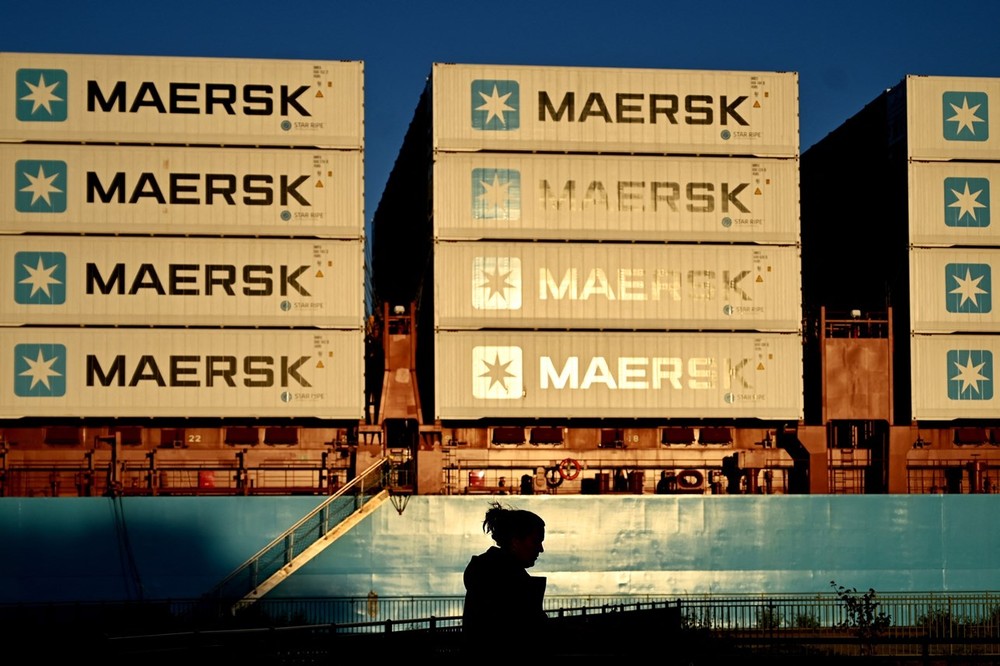The recent escalating tensions in the Red Sea have forced major global cargo shipping companies to take detours. However, this is just one of the challenges that large shipping companies will face as 2024 unfolds.
Denmark’s shipping giant, Maersk, which handles 90% of the global trade volume, is at risk of disruptions due to conflicts worldwide, potentially affecting crucial transport routes like the Panama Canal.
The complex schedules of container ships, fuel tankers, and other cargo vessels may become asynchronous throughout the year. This could lead to delayed and more costly transportation for retailers such as Walmart, IKEA, and Amazon, as well as food manufacturers like Nestle, and grocery stores including Lidl.
Peter Sand, Chief Analyst at Xeneta, a Transport Data Provider, believes that additional risks in 2024 may include increased tensions in the Red Sea up to the Arabian Gulf, affecting oil transportation routes.

Container ships of the Maersk shipping company in Copenhagen, Denmark. (Photo: AFP/TTXVN)
The ongoing crisis in Ukraine continues to make grain trading challenging.
On January 5, Maersk, along with other major shipping companies, redirected vessels away from the Red Sea to avoid conflicts in the region, which could impact the Suez Canal, the shortest route connecting Asia to Europe.
This route transports over 10% of the total goods shipped by sea and nearly one-third of the world’s container shipping.
While oil and fuel-carrying vessels supplying Europe continue to pass through the Suez Canal, most container ships are rerouting cargo through South Africa’s Cape of Good Hope.
Fuel costs for shipowners have surged to $2 million per round trip when shifting to the Suez Canal, and the Asia-Europe spot rates have more than doubled from the 2023 average to $3,500 per 40-foot container.
These rising costs may lead to higher commodity prices for consumers, although Goldman Sachs stated on January 5 that the inflation shock would not be as severe as the disruptions during the 2020-2022 pandemic.
Alan Baer, CEO of OL USA shipping company, anticipates increased challenges in the first quarter of 2024.
According to supply chain software provider project44, shipping through the Panama Canal, an alternative to the Suez Canal, has decreased by 33% due to low water levels. Such limitations have significantly increased transportation costs for dry goods like wheat, soybeans, iron ore, coal, and fertilizer towards the end of 2023.
Severe weather events are becoming more frequent and immediately impacting, if not exacerbating, geopolitical tensions.
Brazil faced the dual impact of a historic drought in the Amazon region and excessive rainfall in the north of the country. These conditions caused longer queues for cargo ships at Paranagua Port at the end of 2023, just a few months before the peak soybean shipping season.
For more artilcles from Unicorn Global Vietnam: https://unicornw.com/news-media/


Comments2
Organically grow the holistic world view of disruptive innovation via workplace diversity and empowerment.
Collaboratively administrate empowered markets via plug-and-play networks. Dynamically procrastinate B2C users after installed base benefits. Dramatically visualize customer directed convergence without revolutionary ROI.